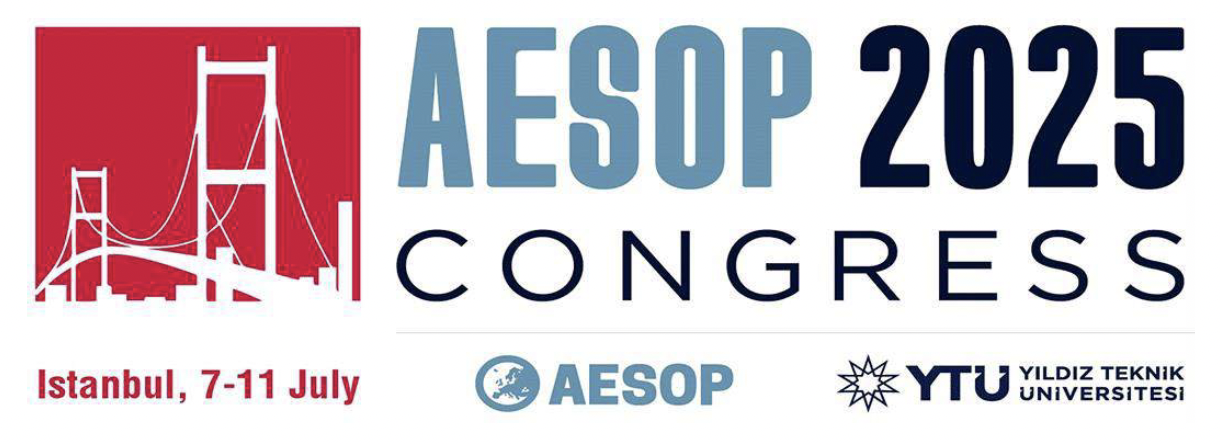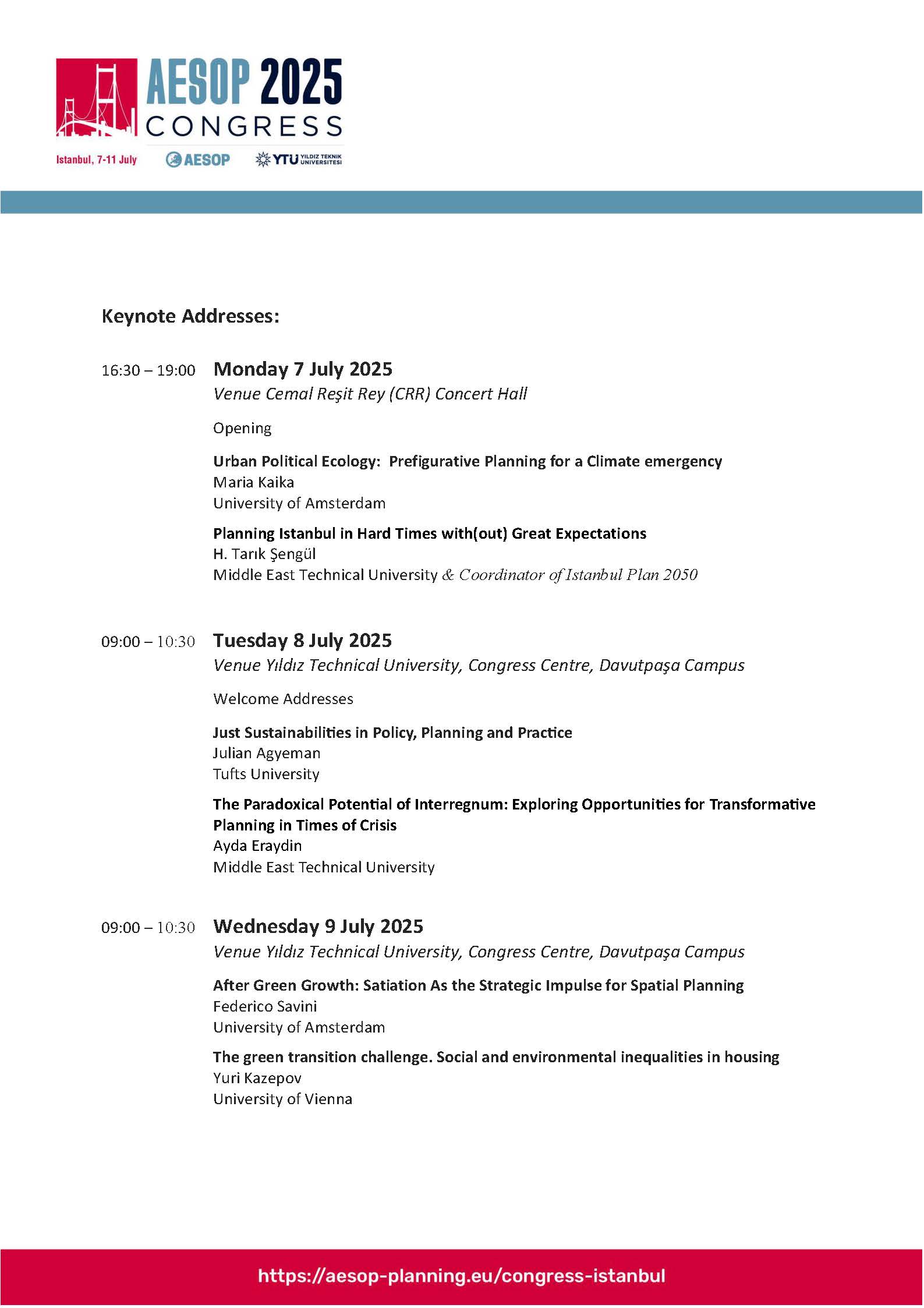
This year’s AESOP Congress will open with a powerful series of keynote addresses that will reflect on the urgent challenges facing planning scholars and practitioners in times of social, environmental, and institutional crisis.
The Congress will kick off on Monday, 7 July, at the iconic Cemal Reşit Rey Concert Hall, with an inspiring opening session dedicated to Urban Political Ecology and Climate Action.
Maria Kaika (University of Amsterdam) will deliver a keynote titled "Urban Political Ecology: Prefigurative Planning for a Climate Emergency", urging planners to rethink their role in the face of accelerating climate crises. Kaika will call for prefigurative planning approaches that move beyond technocratic fixes and embrace more transformative, justice-oriented urban strategies.
Following her, H. Tarık Şengül (Middle East Technical University, and Coordinator of Istanbul Plan 2050) will address the realities of planning in Istanbul during hard times, with a keynote provocatively titled "Planning Istanbul in Hard Times with(out) Great Expectations". Şengül will offer an insider’s view of Istanbul's current planning struggles, highlighting the institutional constraints and political tensions that shape urban governance in the city.
On Tuesday, 8 July, at the Congress Centre of Yıldız Technical University at the Davutpaşa campus, the day will open with welcome addressesand two intellectually stimulating keynotes.
Julian Agyeman (Tufts University) will present "Just Sustainabilities in Policy, Planning and Practice", offering a compelling argument for integrating social equity with environmental sustainability. His address will emphasize that sustainability cannot be achieved without addressing issues of access, equity, and diversity.
Next, Ayda Eraydin (Middle East Technical University) will explore "The Paradoxical Potential of Interregnum: Exploring Opportunities for Transformative Planning in Times of Crisis". Building on critical theory, Eraydin will argue that periods of institutional uncertainty—what she refers to as "interregnum"—can open new spaces for transformative planning practices if planners are willing to embrace ambiguity and contestation.
The third keynote session, to be held on Wednesday, 9 July, again at Yıldız Technical University, will delve into the socio-economic and ecological dimensions of urban transition processes.
Federico Savini (University of Amsterdam) will deliver "After Green Growth: Satiation as the Strategic Impulse for Spatial Planning", inviting planners to question the dominant growth-oriented paradigms and consider how planning can support post-growth, well-being-centered urban futures.
Concluding the keynote series, Yuri Kazepov (University of Vienna) will address "The Green Transition Challenge: Social and Environmental Inequalities in Housing". His talk will highlight how green policies risk exacerbating social inequalities if distributive impacts are not carefully considered, with housing policy emerging as a crucial field for intervention.


